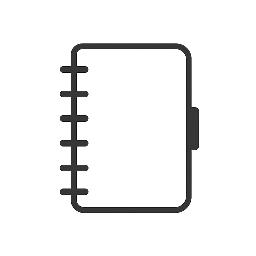Introduction to Work-Life Balance
Let’s be honest: entrepreneurship is not a 9–5 job—it’s more like a 24/7 lifestyle. But if you treat your business like a race with no finish line, you’ll crash before you cross it.
Work-life balance isn’t just about working less; it’s about living more—without sacrificing business growth. This guide will help you create a life where success and sanity go hand-in-hand.
Why Work-Life Balance is Crucial for Entrepreneurs
Avoiding Burnout and Mental Fatigue
If you’re constantly glued to your laptop or phone, eventually, your brain will tap out. Burnout leads to bad decisions, poor communication, and sometimes walking away from something you once loved.
Improving Long-Term Productivity
Contrary to popular hustle-culture myths, rest improves performance. By managing your energy—not just your time—you’ll get more done in fewer hours.
Enhancing Creativity and Strategic Thinking
Some of your best ideas won’t come while you’re working—they’ll show up when you’re walking your dog, in the shower, or on vacation. Space fuels creativity.
Understanding What Work-Life Balance Really Means
It’s Not 50/50—It’s What Works for You
Work-life balance isn’t a mathematical equation. It’s about intentional living—choosing how you spend your time based on your values and goals.
Balance Looks Different at Each Stage
Launching a startup? Expect long hours. Have a team and systems in place? You can reclaim more personal time. Your season defines your schedule.
Common Work-Life Challenges for Entrepreneurs
Wearing Too Many Hats
When you’re the CEO, marketer, accountant, and customer service rep, it’s easy to feel like you’re spinning plates. Too many roles = too little peace.
The Guilt of Taking Time Off
Do you feel guilty for taking a Sunday off? You’re not alone. But here’s the truth: rest isn’t a reward—it’s a requirement for running a business that lasts.
The Pressure to Always Be Available
Clients, customers, and team members expect instant replies. But you’re not a robot. Set response-time expectations and stick to them.
Setting Boundaries Between Work and Life
Define Clear Working Hours
Start and stop at set times—even if you work from home. When the day ends, shut the laptop and step away.
Learn to Say “No” Without Guilt
Every “yes” to something unimportant is a “no” to your peace. Say yes selectively and protect your priorities.
Set Physical and Digital Boundaries
Have a dedicated workspace. Turn off work notifications after hours. Make it easy to switch off.
Time Management Tips for Better Balance
Prioritize High-Impact Tasks
Apply the 80/20 rule: 20% of your tasks drive 80% of your results. Focus on those first.
Use Time Blocking Techniques
Set specific blocks for focused work, meetings, breaks, and personal time. This method reduces context switching and boosts efficiency.
Eliminate Time Wasters
Doom-scrolling, constant email checking, or overthinking tasks? Cut the fluff. Your time is your fuel.
The Power of Delegation and Outsourcing
Hiring Freelancers or Virtual Assistants
You’re not supposed to do everything. Delegate admin work, customer support, or even social media.
Sites like Fiverr and Upwork are great places to start.
Letting Go of Perfectionism
Done is better than perfect. Let others do 80% of the job—it’s still a win.
Use SOPs to Delegate Effectively
Document your processes so others can replicate them. Standard Operating Procedures (SOPs) save time and reduce errors.
Creating a Productive Yet Flexible Routine
Have a Morning Ritual
Great days start with great mornings. Whether it’s meditation, coffee, journaling, or exercise, own your first hour.
Create a Wind-Down Routine
Signal your brain it’s time to shut off. Dim lights, avoid screens, and disconnect from business talk.
Embrace Flexible Fridays or Off-Hours
Use Fridays for creative projects, learning, or even time off. Flexibility is a key perk—don’t waste it.
Using Technology to Simplify Work-Life Balance
Tools for Automation and Scheduling
Use apps like:
- Zapier (automation)
- Trello / Notion (project management)
- Calendly (meeting scheduling)
- Buffer (social media scheduling)
Apps for Wellness and Focus
Use tech for you, not against you:
- Headspace – meditation
- Forest – stay focused
- Sleep Cycle – improve sleep
Using AI to Boost Efficiency
Leverage AI tools (like me!) to automate repetitive tasks, write content, or generate ideas quickly.
Making Time for Health and Wellness
Don’t Skip Physical Activity
Your body is your business partner. Walk, stretch, dance—whatever keeps you moving.
Prioritize Mental Health Check-ins
Journaling, therapy, or a quiet coffee break alone can reset your mindset. Your mental game matters.
Eat Well, Sleep Well, Live Well
Forget energy drinks and pizza at your desk. Fuel your body with real food, real sleep, real care.
Staying Connected to Personal Relationships
Schedule Quality Time with Family & Friends
Being present in your relationships is non-negotiable. You don’t need a 3-hour dinner every day—but you do need intentional time with people who support you.
A 30-minute walk with your partner, lunch with a friend, or storytime with your kids can fill your cup more than any business win.
Unplug During Personal Time
When you’re with loved ones, be with them—physically and mentally. Silence work notifications, put your phone on “Do Not Disturb,” and give your full attention.
Build a Personal Life You Don’t Want to Escape From
If your life outside of work is fulfilling, you won’t feel the need to constantly escape into work. Hobbies, passions, adventures—they matter more than you think.
Embracing the Power of Saying “No”
Choose Quality Over Quantity in Commitments
You don’t need to attend every event, hop on every Zoom call, or take every opportunity. Say yes to fewer, better things.
Avoid Overbooking Your Calendar
Your calendar shouldn’t look like a game of Tetris. Leave white space. Room to breathe creates room to think.
Celebrating Small Wins and Progress
Acknowledge Achievements Regularly
Finished a project? Hit a revenue goal? Responded to 100 emails? Celebrate it. Entrepreneurship is hard—don’t wait for the big wins to feel proud.
Reflect to Stay Aligned with Your Purpose
Once a week or month, ask yourself:
- Am I working on what matters?
- Am I still aligned with my personal values?
- Is my business serving me—or the other way around?
Realignment = real growth.
Conclusion
Entrepreneurship can either set you free—or chain you to your desk. The difference lies in how well you balance ambition with intention.
Work-life balance isn’t a finish line—it’s a daily choice. It’s choosing rest, relationships, health, and clarity—alongside the hustle, not after it.
You started your business to create a better life. Don’t let the business become your life. Create space for joy, growth, and the people who matter most. Because that’s where real success lives.
FAQs
1. Is work-life balance possible in the early stages of a startup?
Yes, but it may look different. Balance doesn’t mean less hustle—it means intentional hustle. Even 15 minutes of personal time counts.
2. How can I avoid guilt when I take a break?
Remind yourself that rest fuels productivity. You can’t pour from an empty cup—and your business needs the best version of you.
3. What’s the best daily routine for entrepreneurs?
There’s no one-size-fits-all, but a strong structure includes:
- Morning routine (mindset, planning, movement)
- Focused work blocks
- Scheduled breaks
- End-of-day wind-down
4. Can I still grow my business if I work fewer hours?
Absolutely! It’s about working smarter, not longer. Focus, automation, and delegation can multiply your output.
5. What if I enjoy working all the time—is that bad?
Loving your work is amazing—but you still need rest, human connection, and fun to avoid long-term burnout.


Leave a Reply